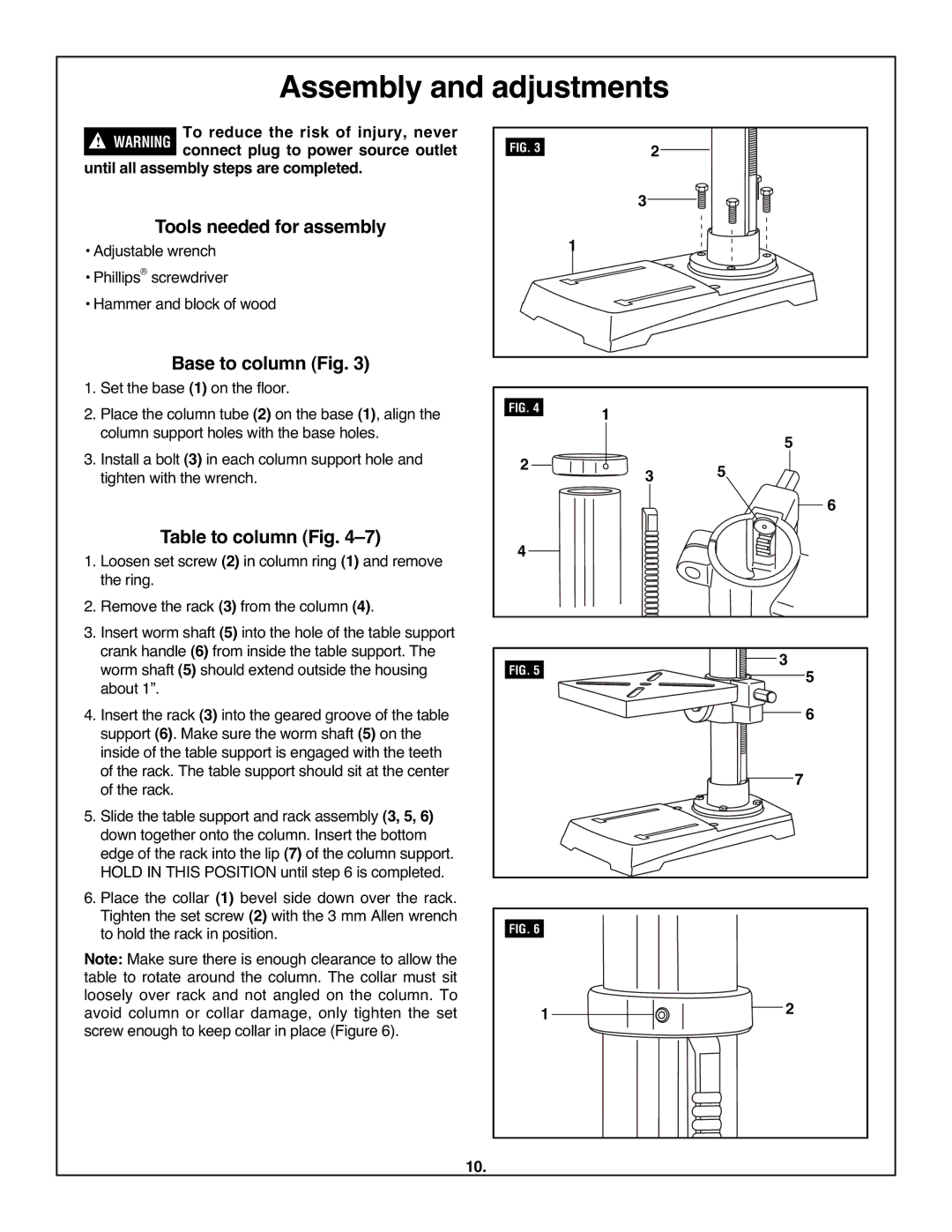
Assembly and adjustments
! | WARNING | To reduce the risk of injury, never |
| connect plug to power source outlet |
until all assembly steps are completed.
Tools needed for assembly
• Adjustable wrench
• Phillips® screwdriver
• Hammer and block of wood
Base to column (Fig. 3)
1. Set the base (1) on the floor.
2. Place the column tube (2) on the base (1), align the column support holes with the base holes.
3. Install a bolt (3) in each column support hole and tighten with the wrench.
Table to column (Fig. 4–7)
1. Loosen set screw (2) in column ring (1) and remove the ring.
2. Remove the rack (3) from the column (4).
3. Insert worm shaft (5) into the hole of the table support crank handle (6) from inside the table support. The worm shaft (5) should extend outside the housing about 1”.
4. Insert the rack (3) into the geared groove of the table support (6). Make sure the worm shaft (5) on the inside of the table support is engaged with the teeth of the rack. The table support should sit at the center of the rack.
5. Slide the table support and rack assembly (3, 5, 6) down together onto the column. Insert the bottom edge of the rack into the lip (7) of the column support. HOLD IN THIS POSITION until step 6 is completed.
6. Place the collar (1) bevel side down over the rack. Tighten the set screw (2) with the 3 mm Allen wrench to hold the rack in position.
Note: Make sure there is enough clearance to allow the table to rotate around the column. The collar must sit loosely over rack and not angled on the column. To avoid column or collar damage, only tighten the set screw enough to keep collar in place (Figure 6).
FIG. 3 | 2 |
|
| |
|
|
| ||
| 3 |
|
| |
| 1 |
|
| |
FIG. 4 | 1 |
| 5 | |
2 |
| |||
3 | 5 | |||
6 | ||||
4 |
|
| ||
|
|
|
FIG. 5 | 3 | 5 |
|
| 6 |
7
FIG. 6
1 | 2 |
10.
